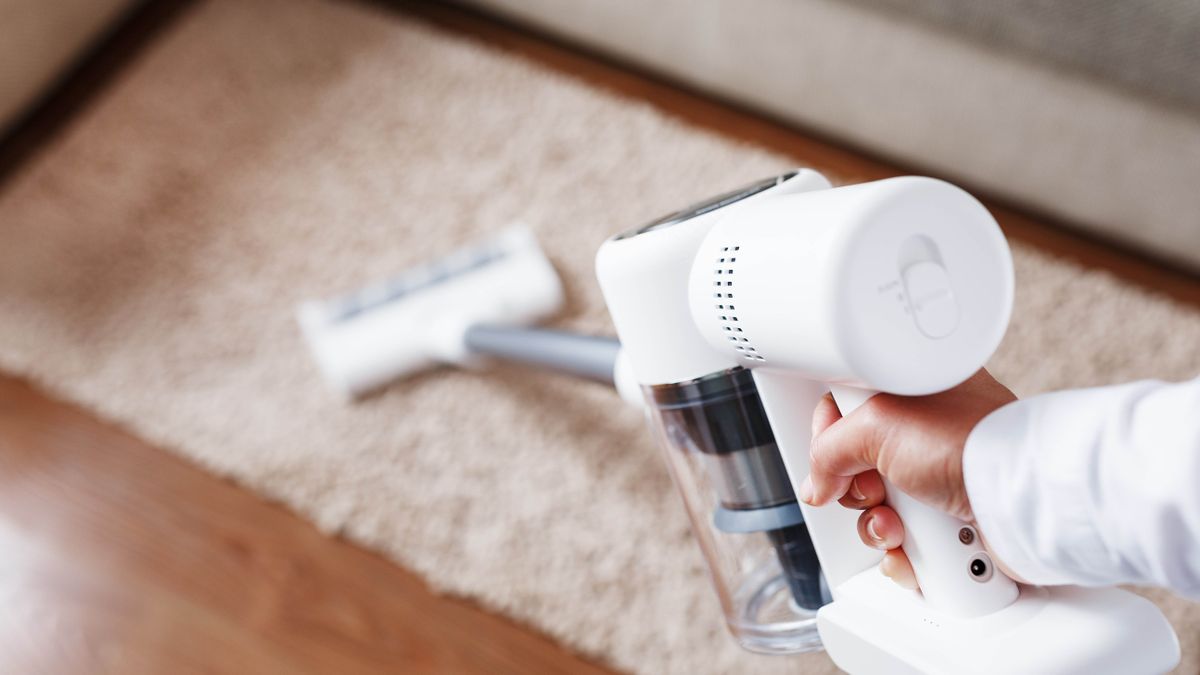When it comes to our cleaning chores, having one of the best vacuum cleaners is an essential tool to quickly suck up dirt and debris for spotless floors. But, are you vacuuming your floors often enough? What’s more, when was the last time you gave your hard floors a deep clean with a mop or a wet/dry vacuum?
According to the professionals, the majority of us are not doing this essential chore often enough. Additionally, we’re probably making some common vacuum cleaning mistakes in the process! Not only is maintaining clean floors essential for hygiene and safety, spotless floors help to make our homes look aesthetically pleasing and inviting.
So, if you want to ensure clean carpets and sparkling hardwood, a flooring expert reveals how often we should actually vacuum and mop our floors — you’ll be surprised.
How often should you vacuum your floors?
If you have your usual cleaning habits, you may want to change your routine right now. “When it comes to vacuuming, I suggest carrying out this cleaning activity much more regularly, setting time aside to vacuum twice a week — especially in heavy-traffic rooms,” states Liam Cleverdon, Flooring Expert at Flooring King .“For pet-heavy homes, vacuuming should be completed three to four times a week to remove any bacteria, dirt or stray hairs.
“Vacuuming is vital for regular floor maintenance and helps protect against the collection of dirt, dust and grime. That’s why I suggest people carry out this task more than once a week, helping avoid illness while enhancing aesthetics.”
And if you find vacuuming an arduous chore, what’s the best method of cleaning smarter — not harder! “To achieve the cleanest look, start from the corners of the room and work your way to the center,” Cleverdon continues. “It’s also crucial to avoid vacuums with wheels that could scratch flooring, leaving homeowners with permanent damage. Vacuuming an area more than once can help target stubborn dirt and dust, particularly in carpets, which may not be sufficiently cleaned at the first attempt.”
How often should you mop?
Whether you’re using a traditional mop or have a wet/dry vacuum cleaner, this task can often be time-consuming and a little messy. However, experts say it’s one of the most important tasks to ensure clean and germ-free floors. As a result, we should really be mopping on a weekly basis.
“Mopping is incredibly important for the maintenance of healthy, clean floors,” Cleverdon agrees. “A mix of water and white vinegar can target and remove grime effectively and is safe to use on most floors. Dish soap is another useful treatment when mopping floors, however, for vinyl, it’s typically safer to opt for a pH-neutral floor cleaner, designed for use on this flooring type.”
In addition, cleaning up small messes or spillages immediately can help to maintain the quality and appearance of floors. “It’s crucial to mop spillages as quickly as possible, to avoid damage and stains remaining long-term,” adds Cleverdon. “However, in terms of general cleaning, as a flooring expert, I believe mopping high-traffic areas on a weekly basis can ensure floors remain clean and in the best condition. This may be different in homes with children or pets, in this case, mopping every two to three days can maintain a healthy living environment for the entire family.
“Depending on the flooring color, dirt may show up more easily, this is particularly true with light shades of wood. As a result, mopping more frequently can ensure aesthetics are not compromised. Overall, every home is different and requires varying upkeep, but as a general rule of thumb, weekly mopping can help keep flooring in tip-top condition.”
Just be sure not to make any of these 7 mopping mistakes which are ruining your floor.
More from Tom’s Guide
Source link
